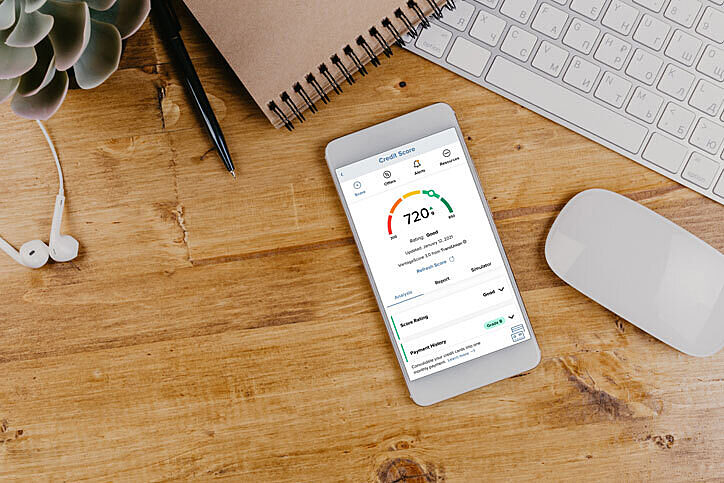
Your top 5 credit questions answered
A survey from U.S. News & World Reports shows that nearly one-third of Americans surveyed were unclear about exactly what factors have an impact on their credit score. It’s no wonder with a lack of financial literacy courses available to most school-age students in the U.S.
While some people may not realize it, a good (or excellent) credit score gives you the best chance of applying for and receiving low interest rates on big-ticket purchases such as mortgages and car loans as well as on the credit cards you use for everyday purchases. Your credit also plays a role in whether you qualify to rent an apartment and what you pay for homeowners and auto insurance.
Here are some frequently asked questions about credit with answers to help you make better informed financial decisions.
What’s a credit utilization ratio and the ideal range?
Many people don’t realize that using too much of your available credit can have a negative impact on your credit. That’s where your credit utilization ratio comes in. Essentially, it’s the percentage of available credit that you’re using at any given time. To keep your credit score up, aim to use at most only 10% to 30% of the credit you have available at any time. To do that, carefully monitor how much you spend each month and if you have a heavy spending month, pay your bill before it’s due to bring the ratio down and keep yourself in range.
Will carrying a zero balance on my credit card help build credit?
If you haven’t used your credit card in a six-month period, it could be considered inactive and your issuer could cancel the account. This will unfortunately have a negative impact on your credit score. The reason? That goes back to your utilization ratio. If you have a small amount of debt and a lot of available credit, that means you have a low utilization ratio, which is good. When your credit card issuer closes your account because of inactivity, it decreases your available credit, and dings your credit score.
The solution? To keep your cards active, use them once a month or so, then pay off the balance on or before the due date. Another easy way to keep a credit card account active is to place a monthly automatic charge on the card. Then, pay that credit card itself via an automatic payment. You’ll never be late!
Should I close credit card accounts I don’t use anymore?
Not necessarily. Why? It goes back to that utilization ratio. When you close an account, you lose that line of credit. That tends to automatically increase your utilization ratio which — depending on where it is to begin with, can hurt your score. If you want to switch cards to avoid an annual fee, one option is to replace the line of credit with another card that doesn’t charge fees. You can also ask your credit card issuer (nicely) to switch you to another card with no fee. The alternative? If you do close a card, pay down some debt to keep your utilization ratio in the clear. One more thing to consider if you’re thinking of closing a card is your credit age, closing your oldest card could impact that factor as well.
How can I improve a low credit score?
First: pay your bills on time every time. If you’re having trouble qualifying for a regular credit card (or in the process of rebuilding your credit), consider applying for a secured card. With this type of card, you deposit a sum of money (typically a few hundred dollars). That becomes your collateral to secure your credit. Then you go about using the card and paying the bills. That habitual behavior will help you improve your credit. Check with your credit union or bank to see what secured card options they offer.
How long will it take to see improvement in a low credit score?
Those who keep credit card balances low — at 30% of the credit line or less — and making timely payments for at least six months in a row, should start to see an improvement in their credit scores. Don’t be discouraged if it takes a bit longer, though. Think of this as a marathon, not a sprint.
Fortera members now have instant access to their credit score and credit report, along with personalized tips on how to improve their score or maintain an already great score. Click here to learn more.
Article distributed in partnership with SavvyMoney with reporting by Casandra Andrews and Jean Chatzky